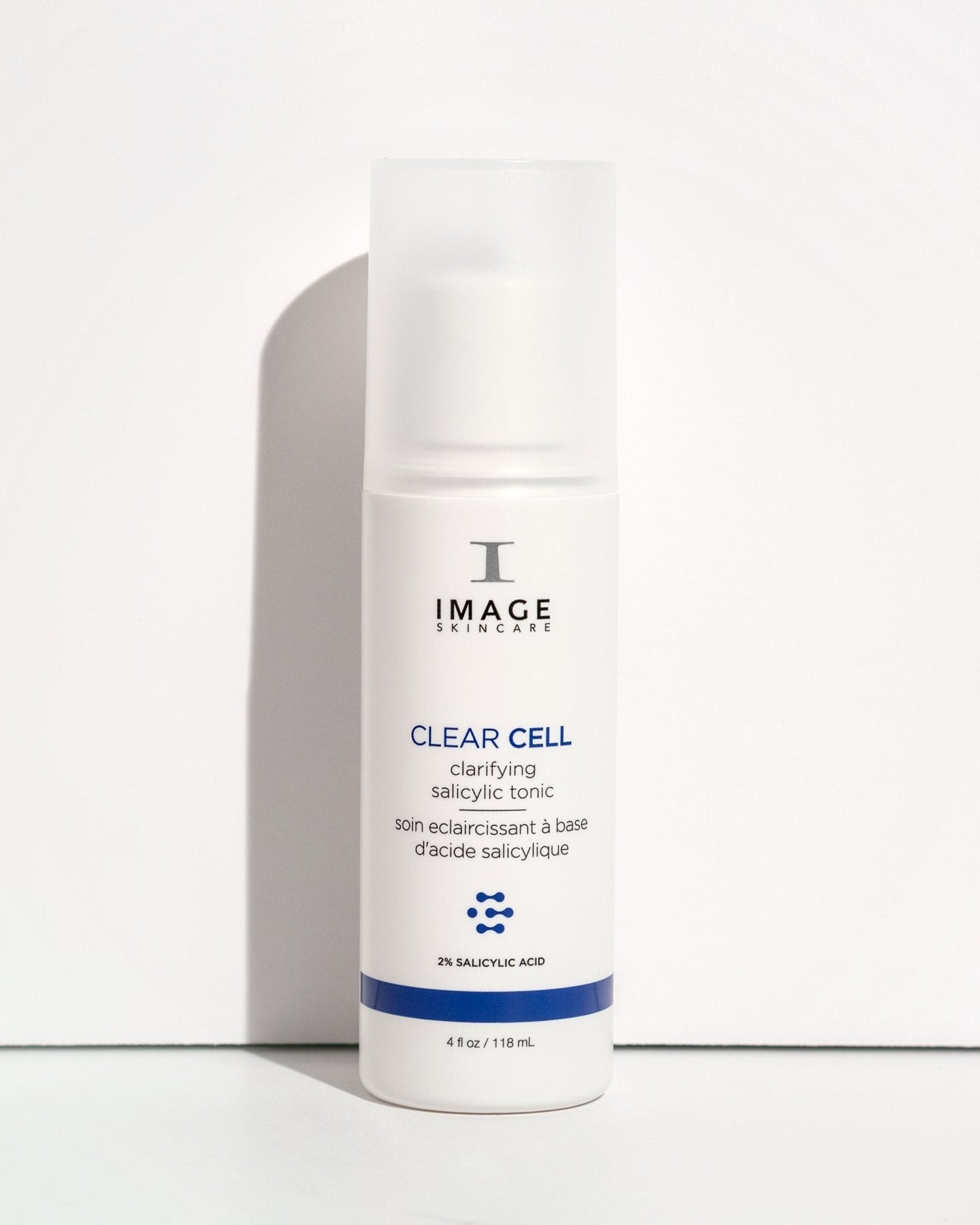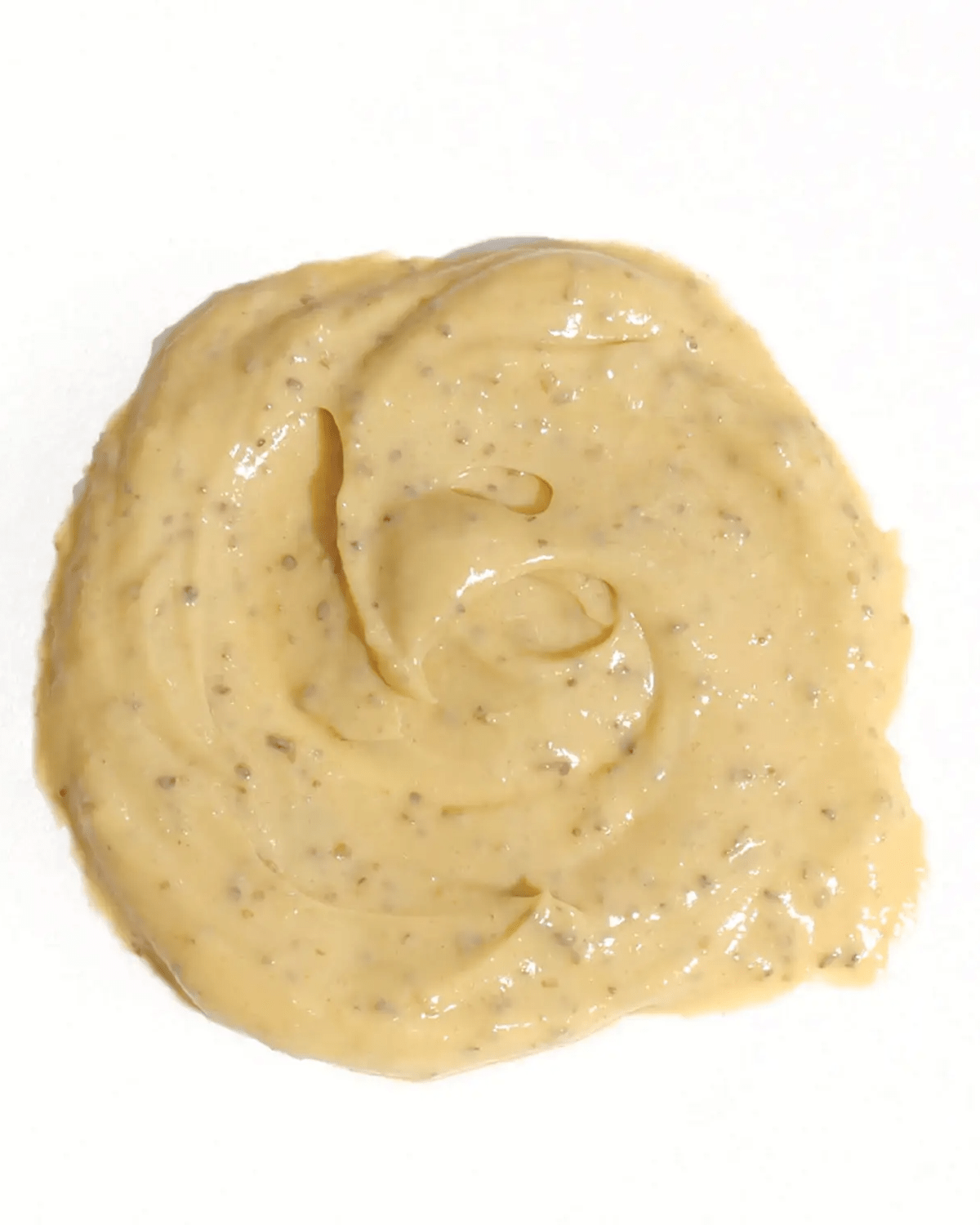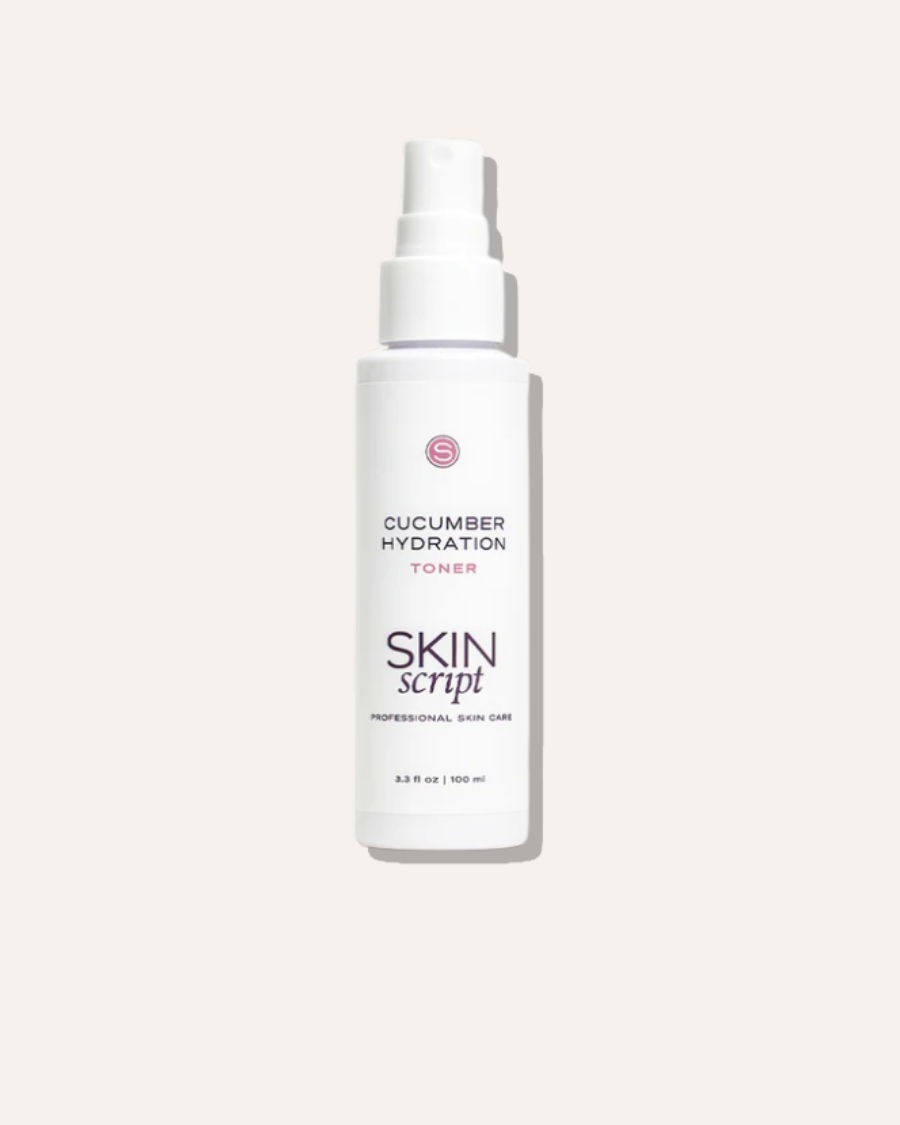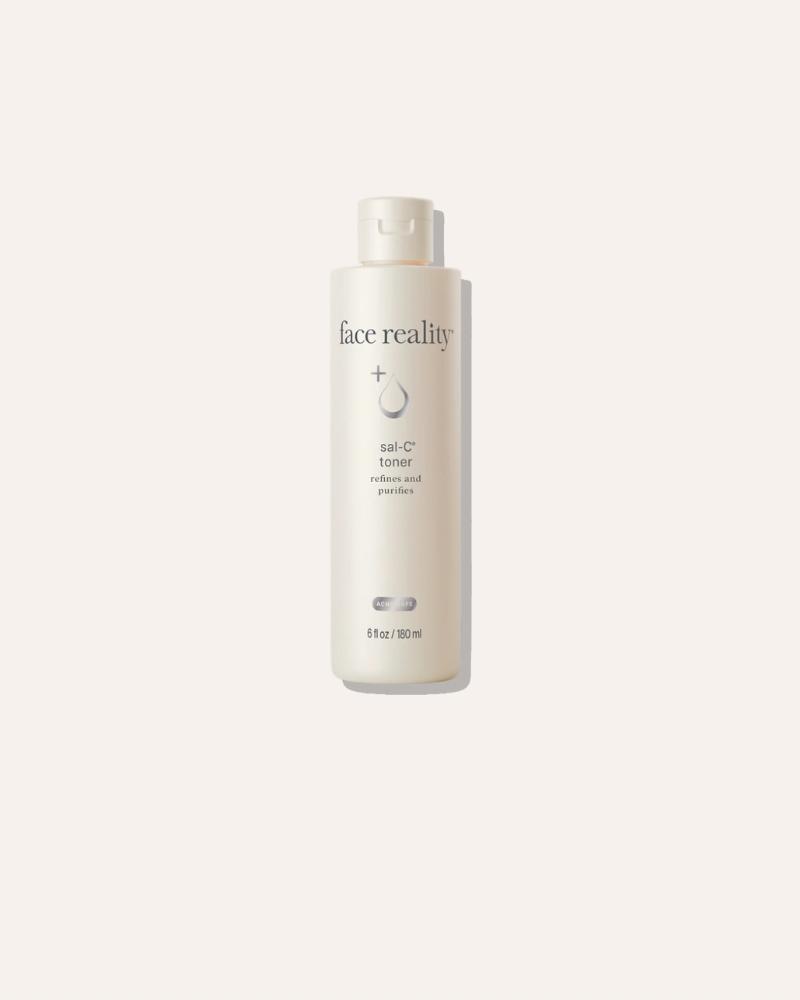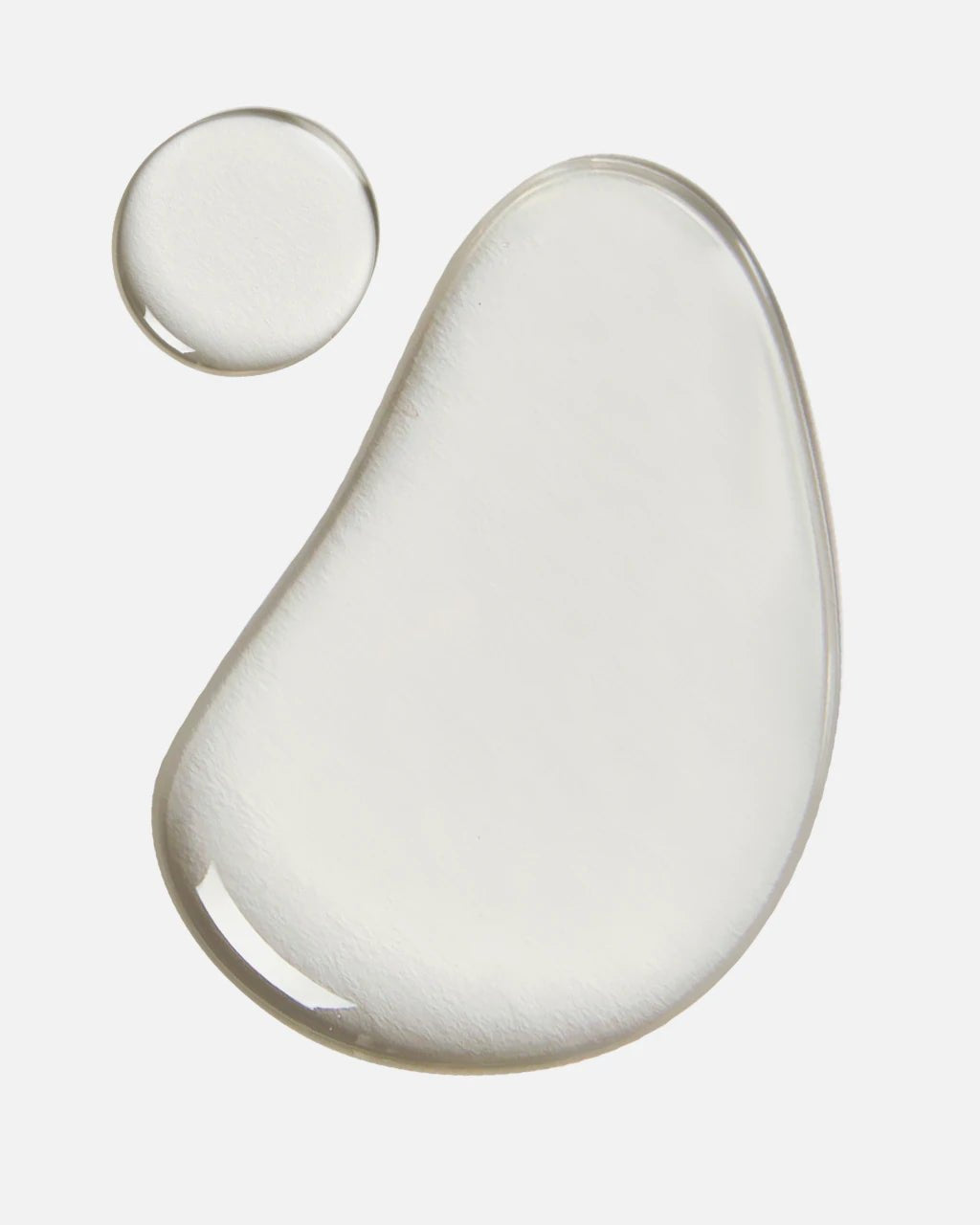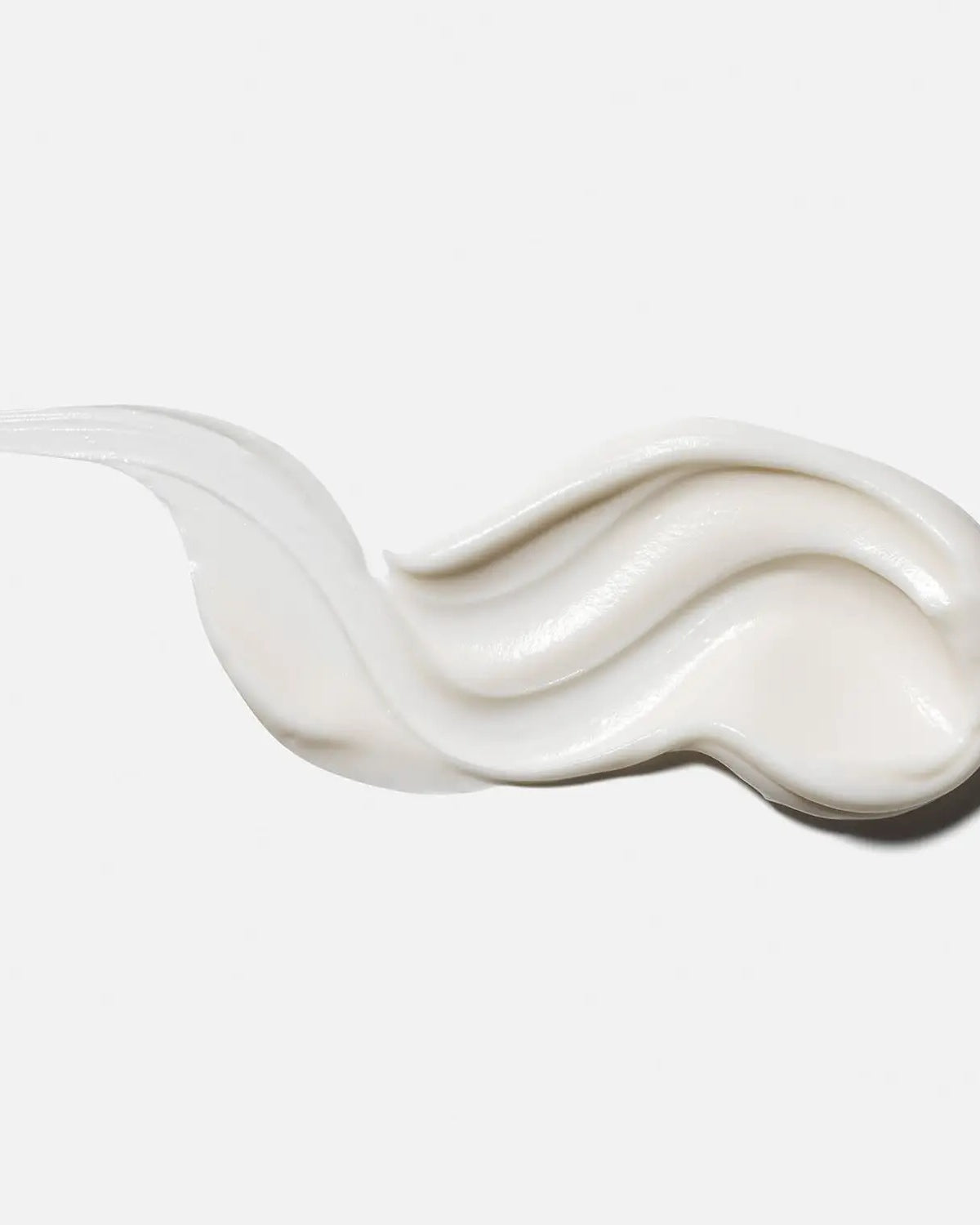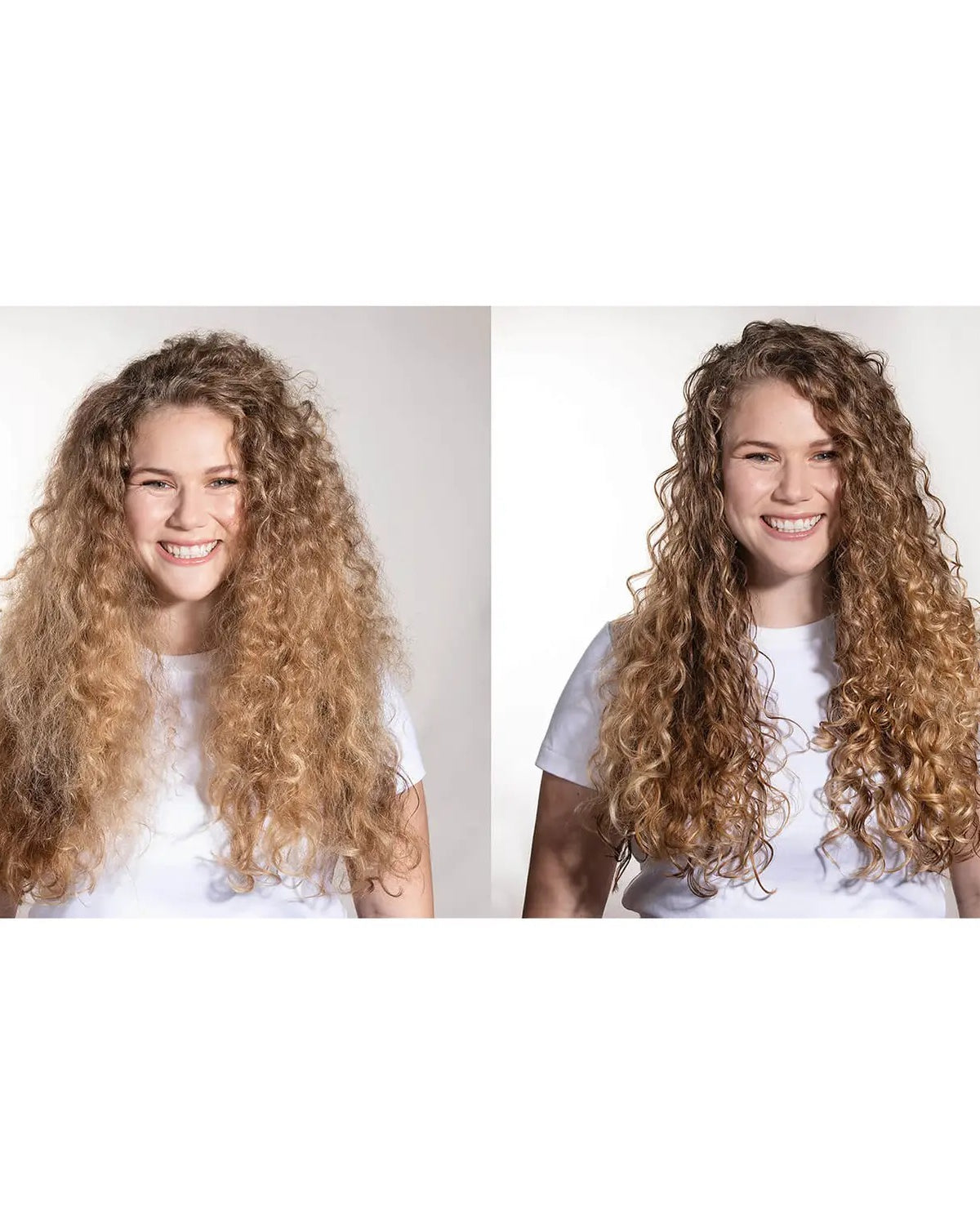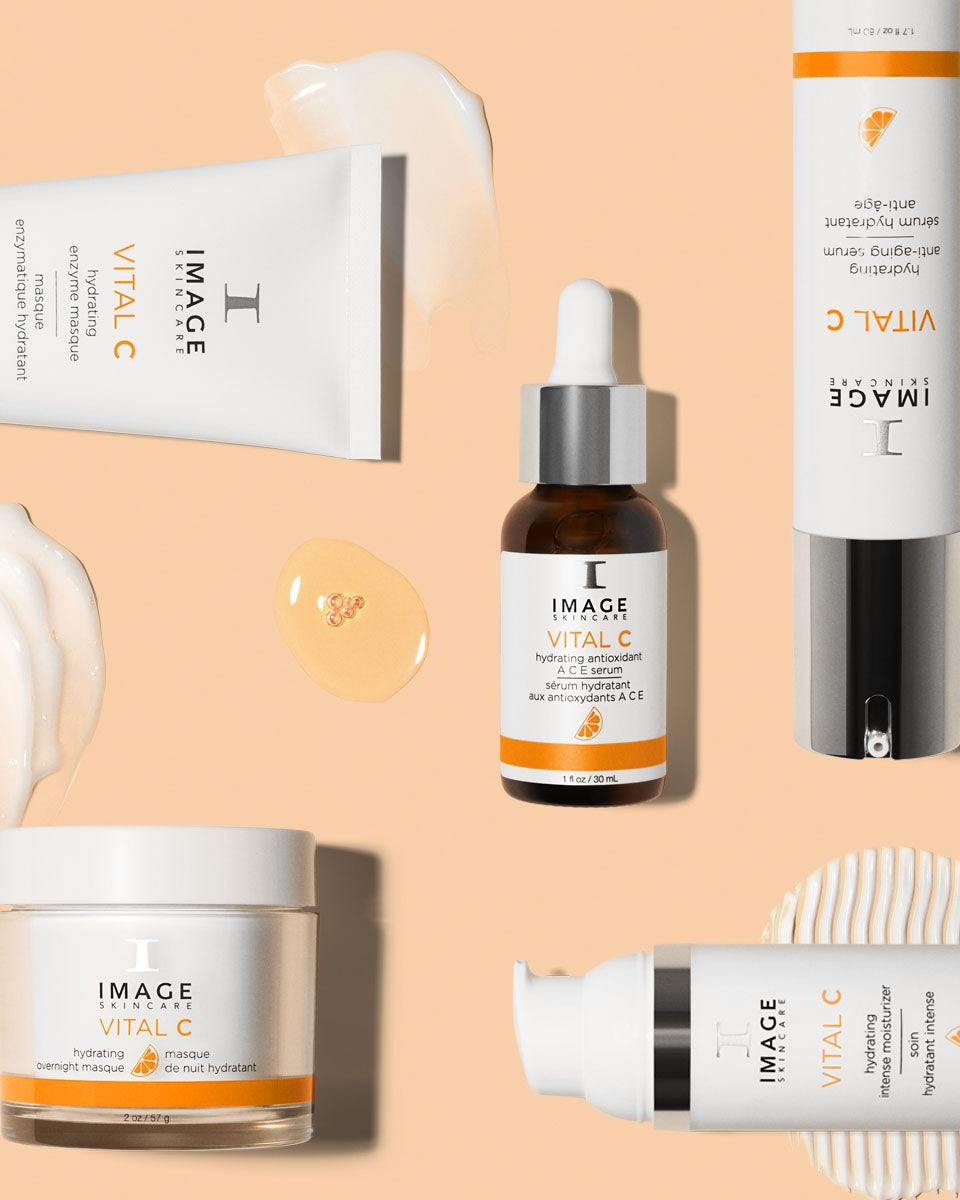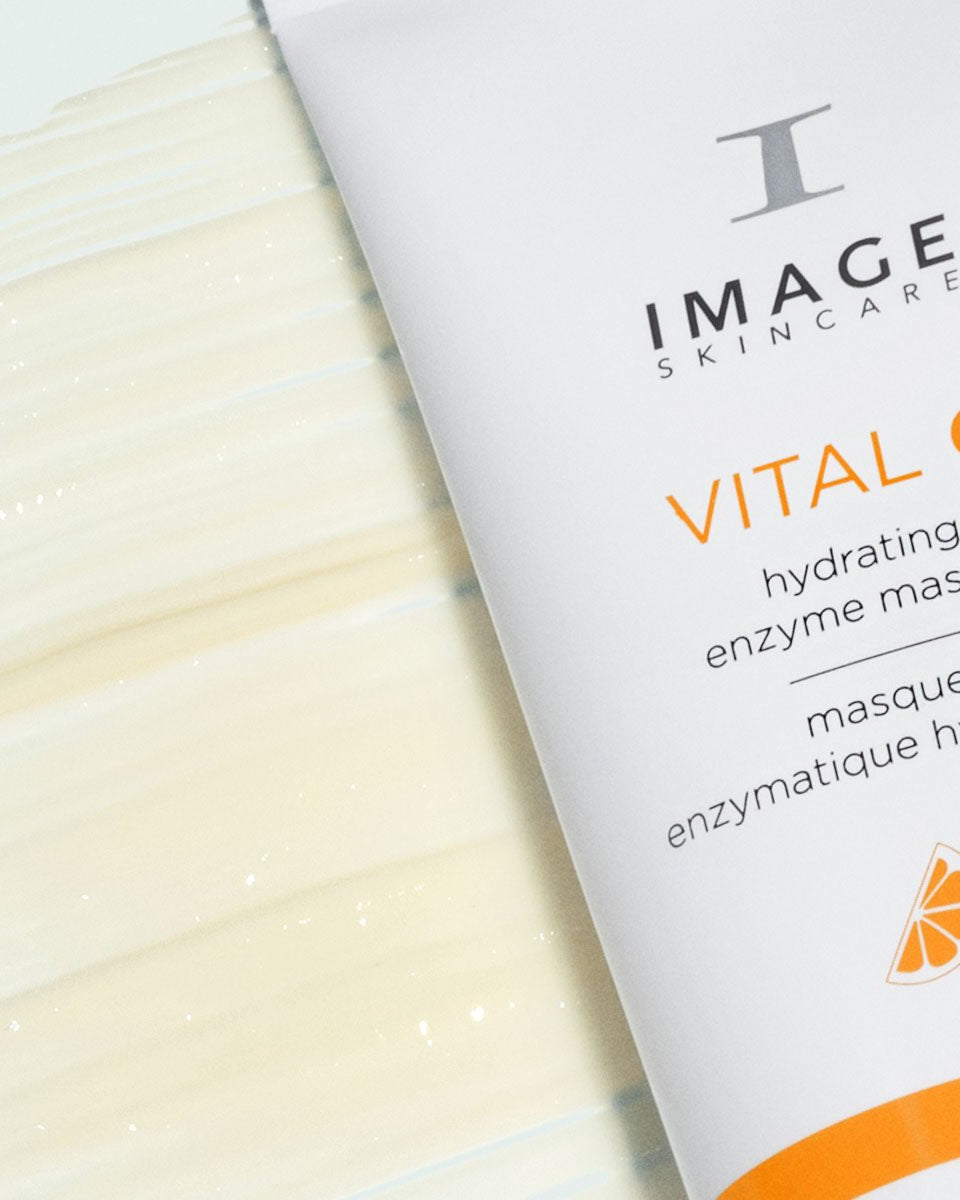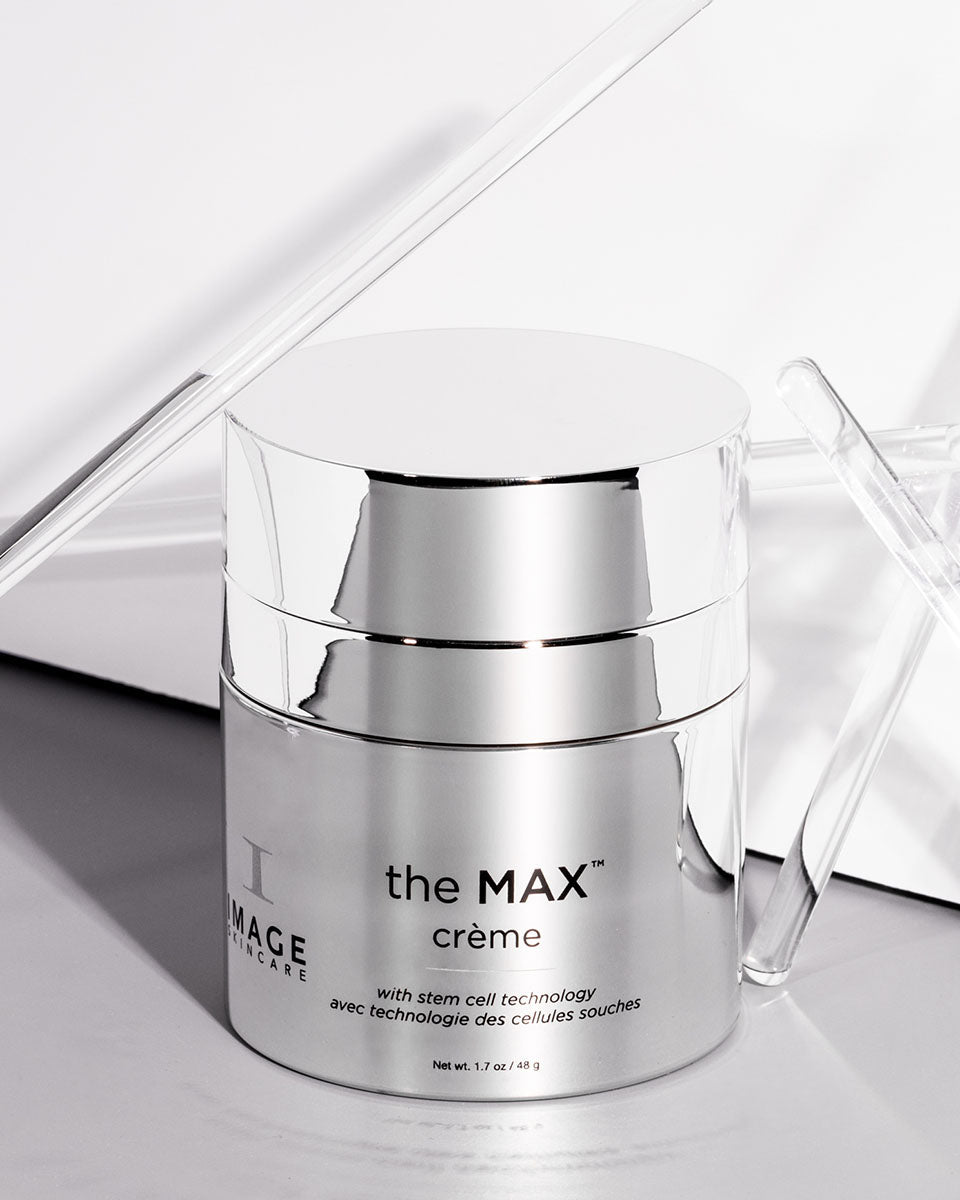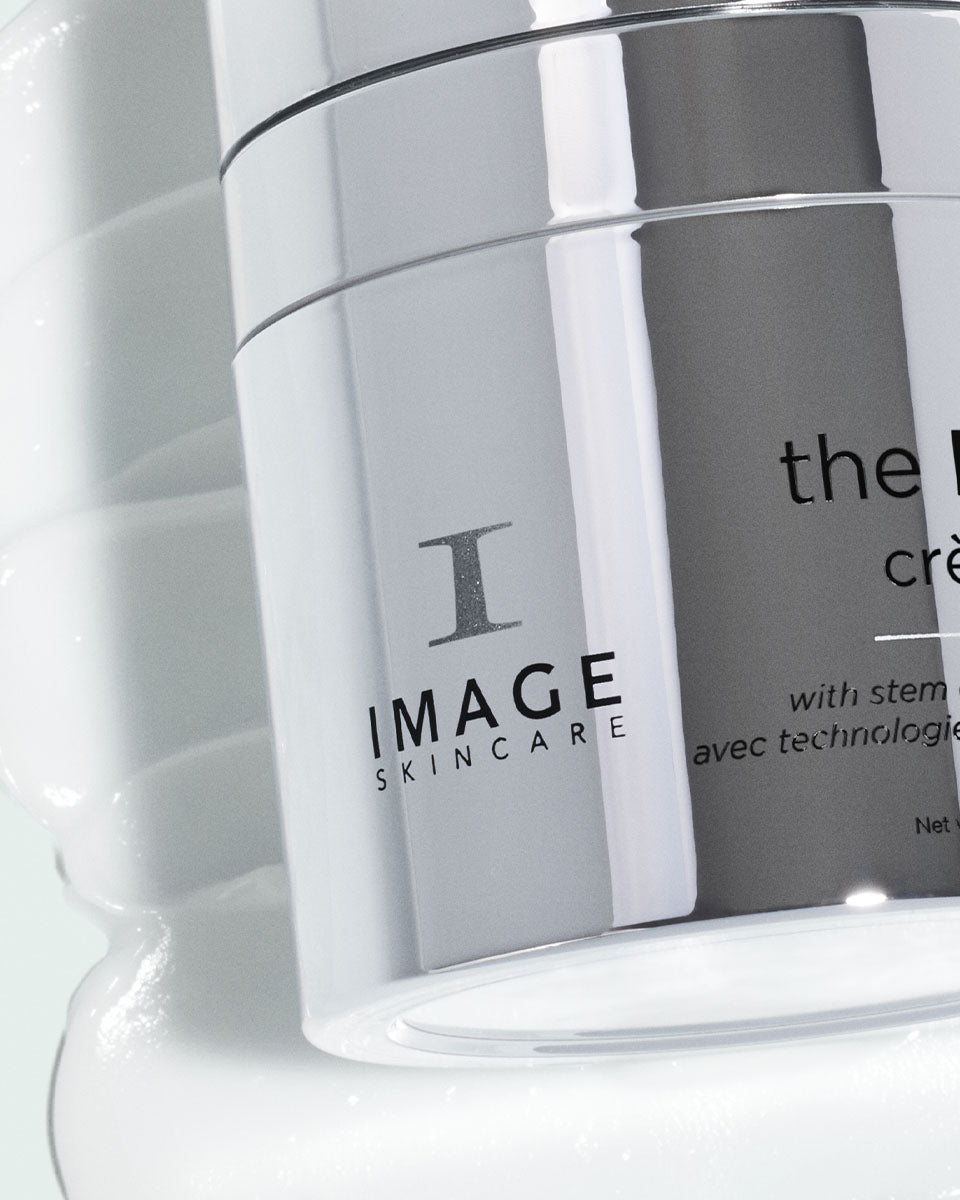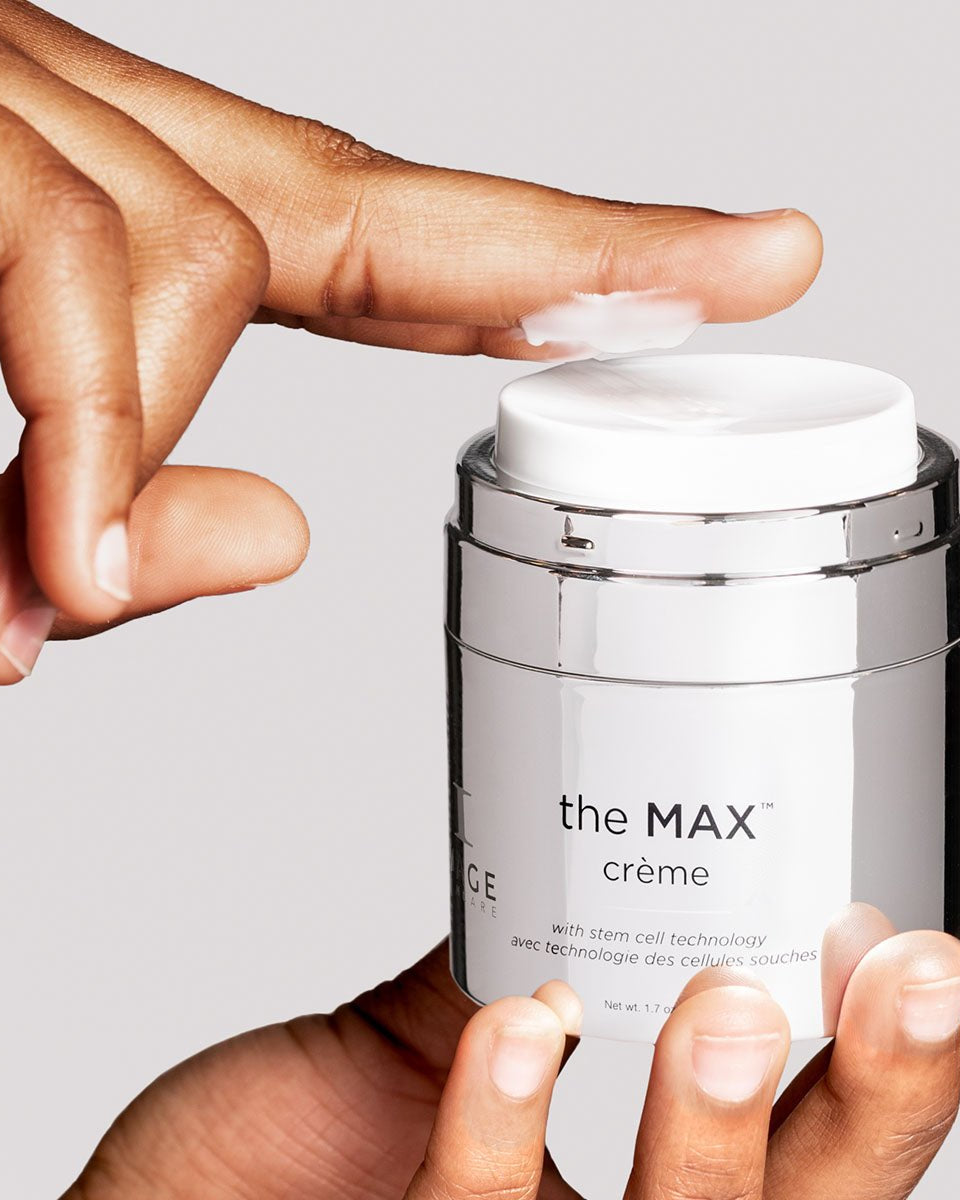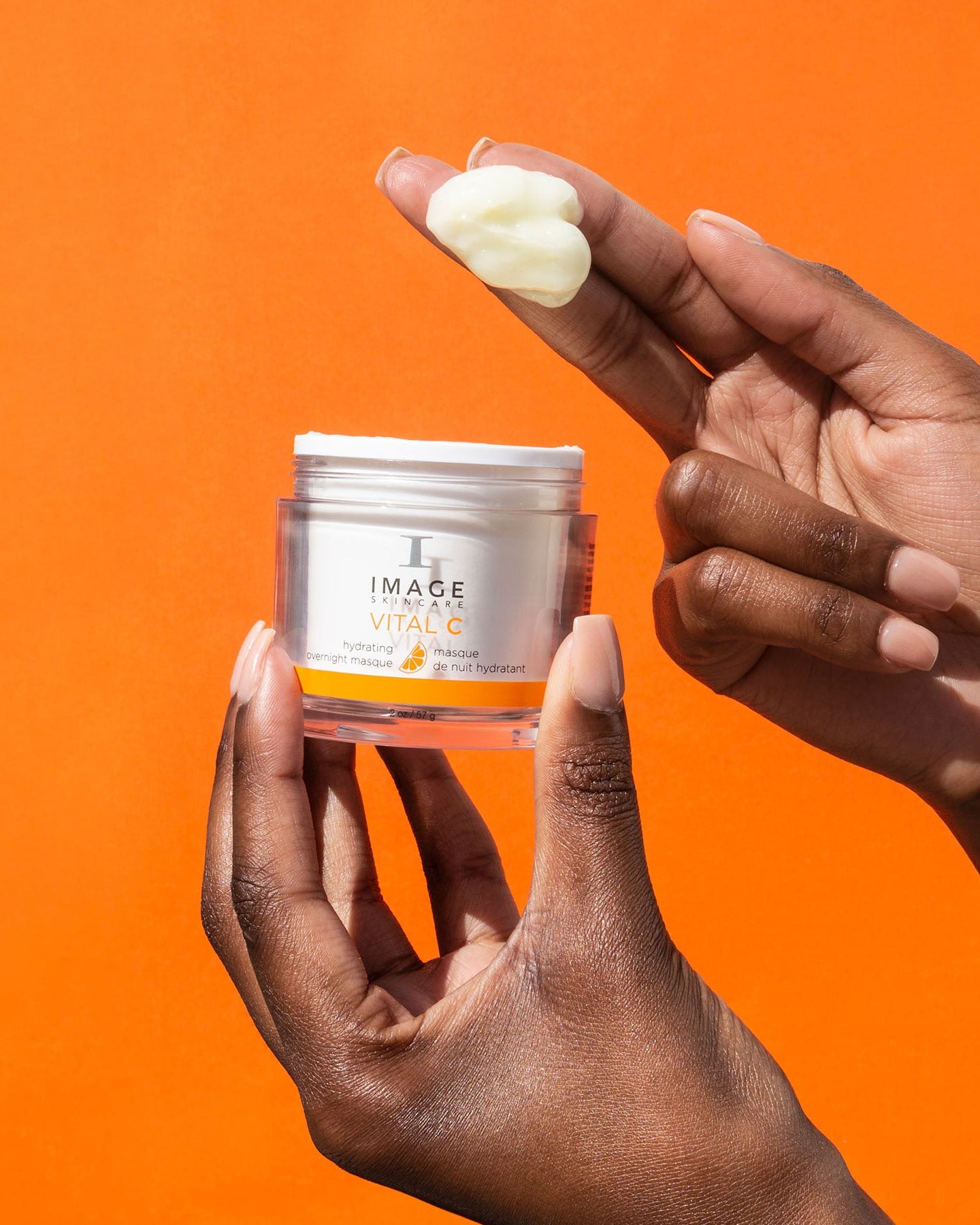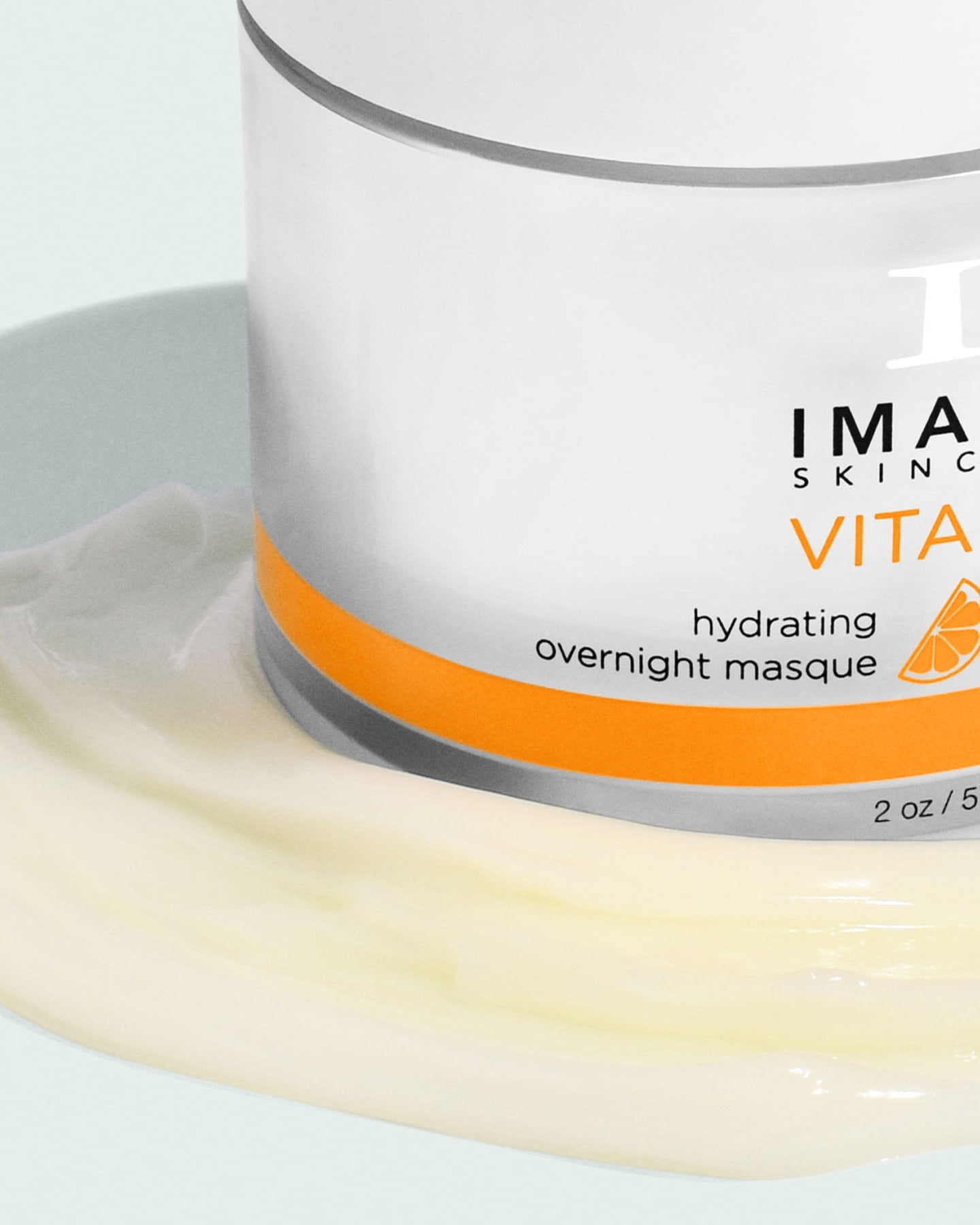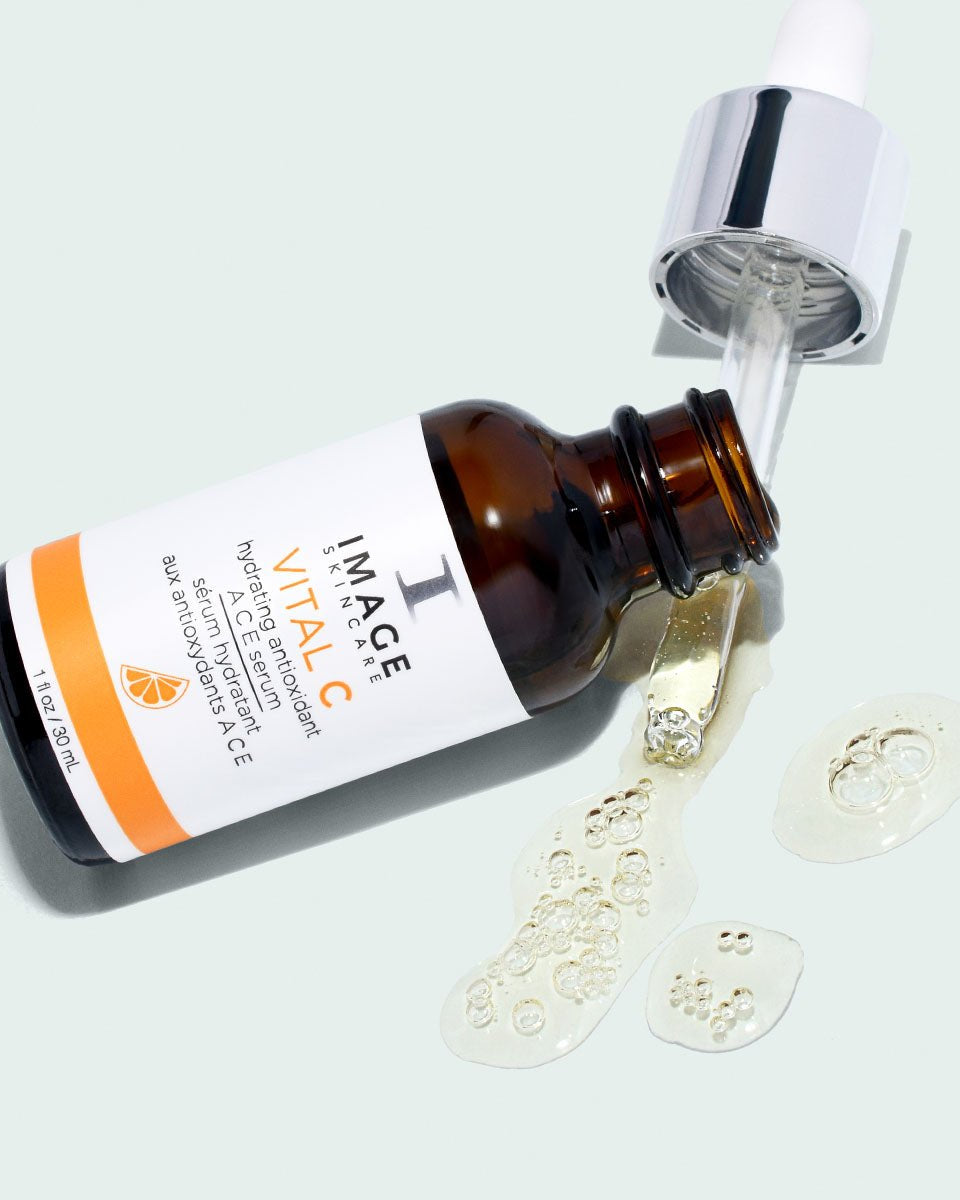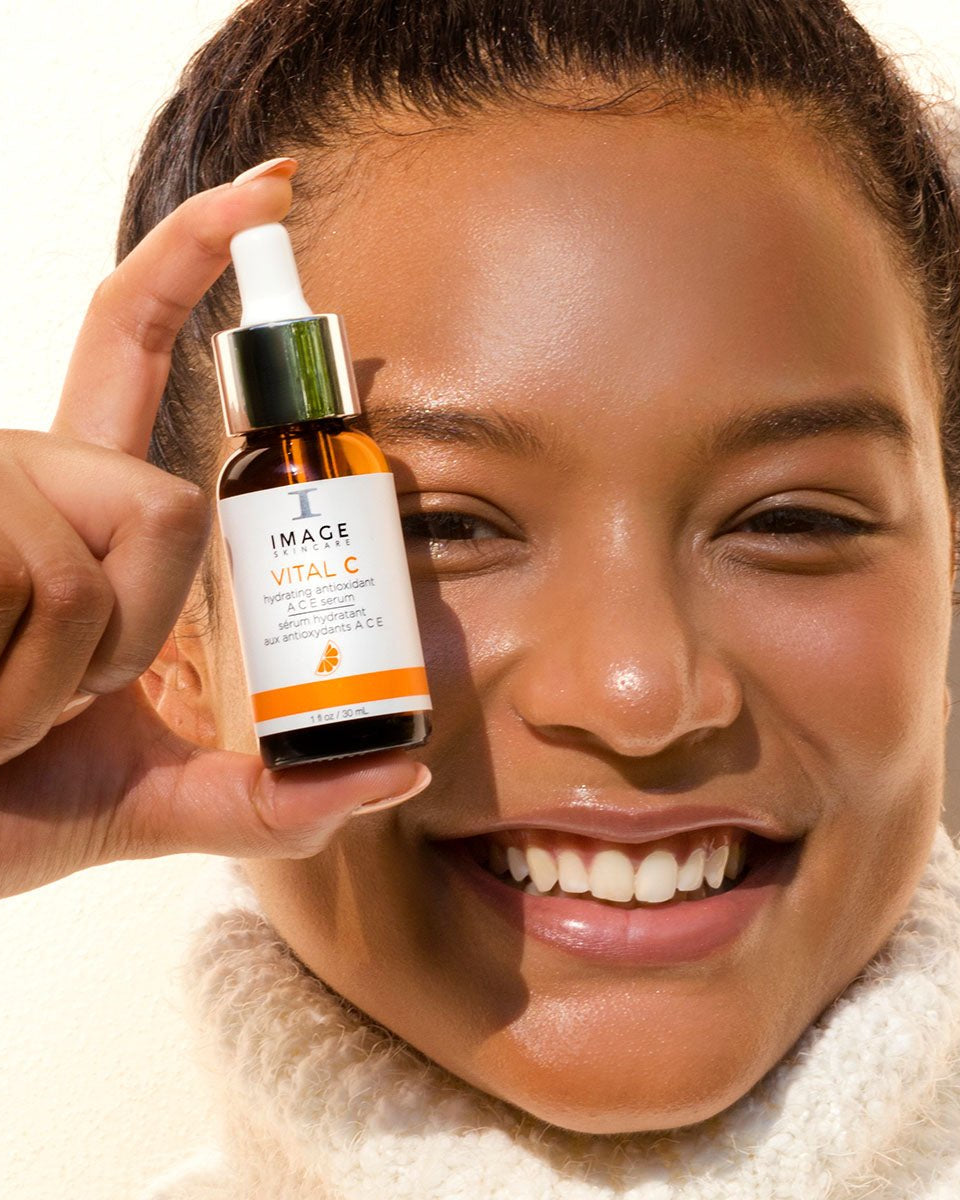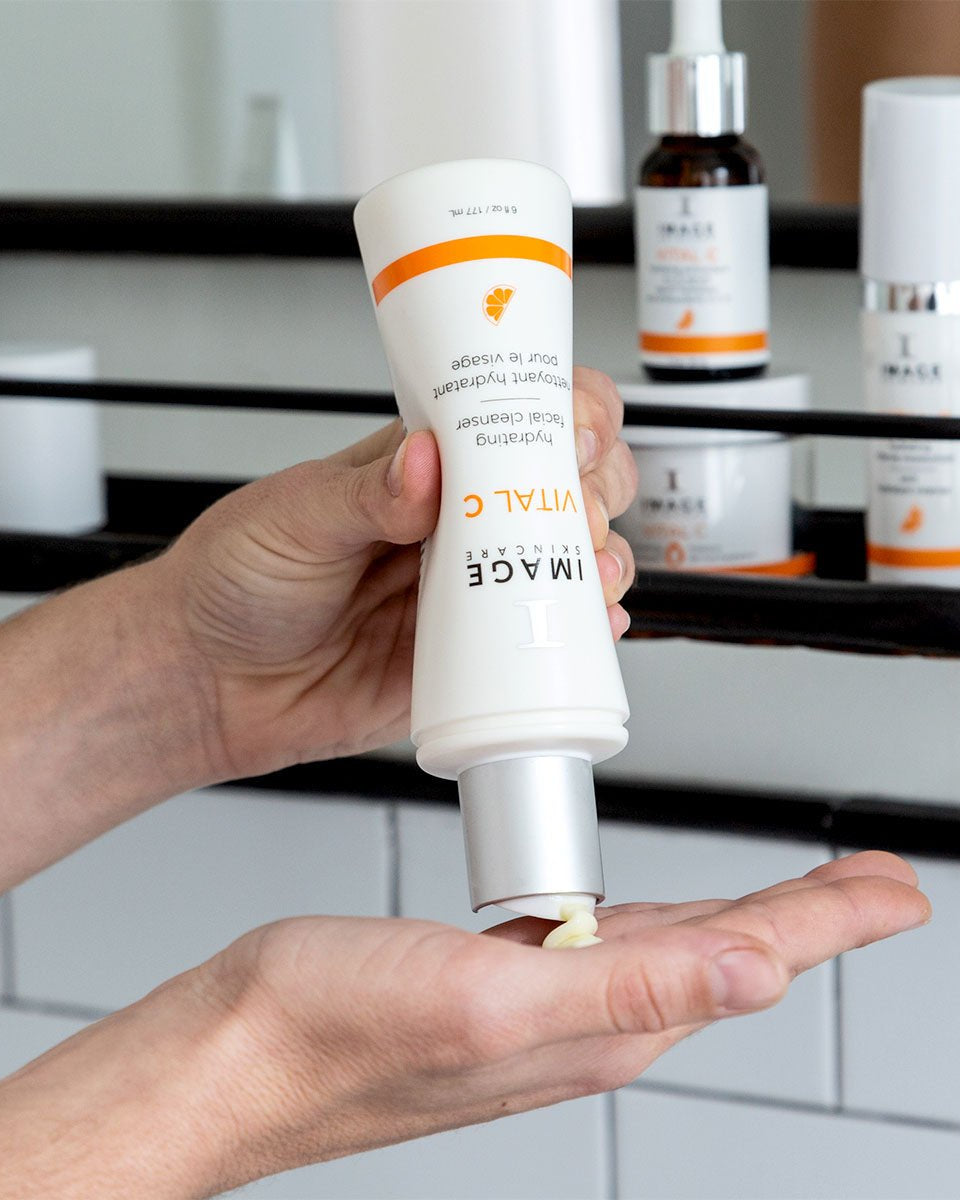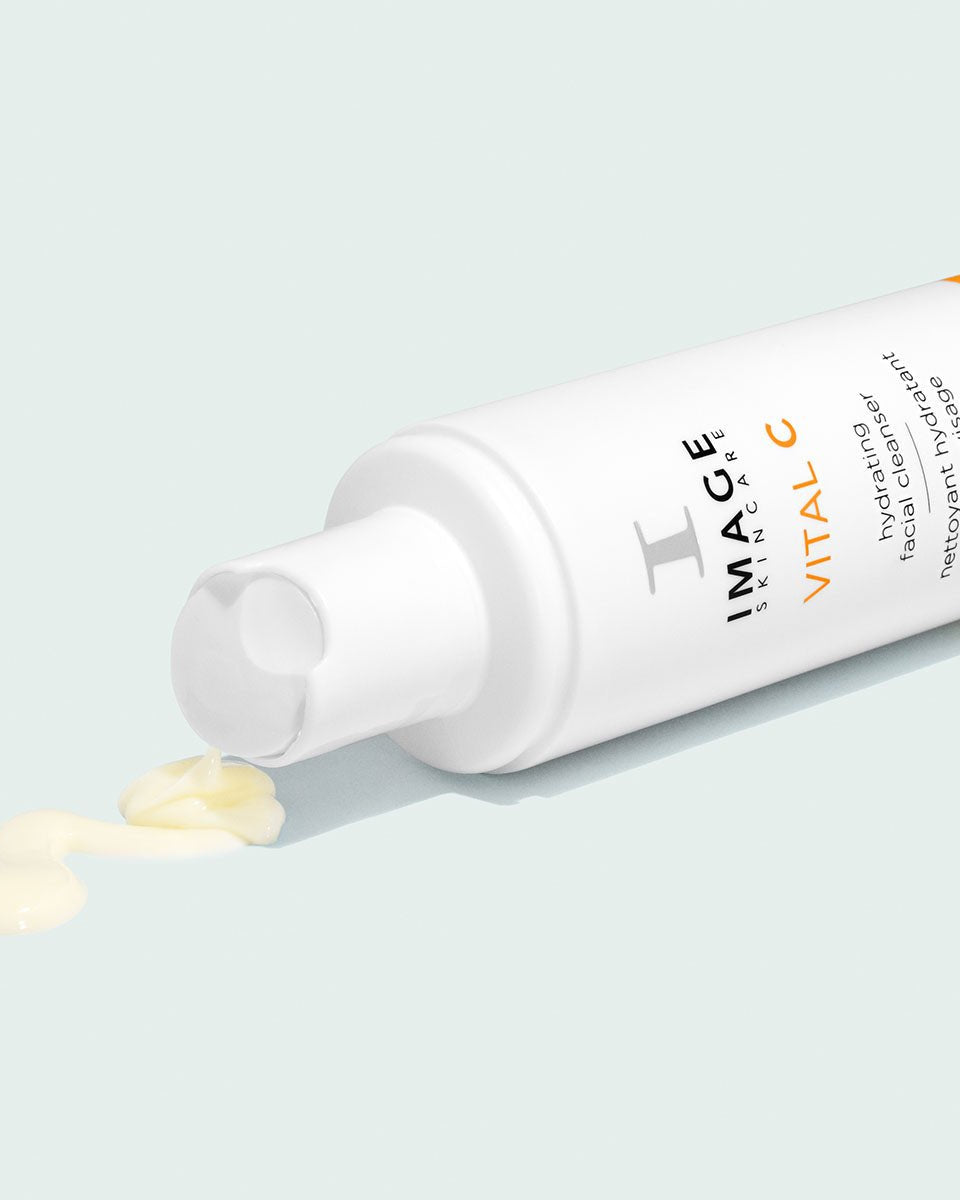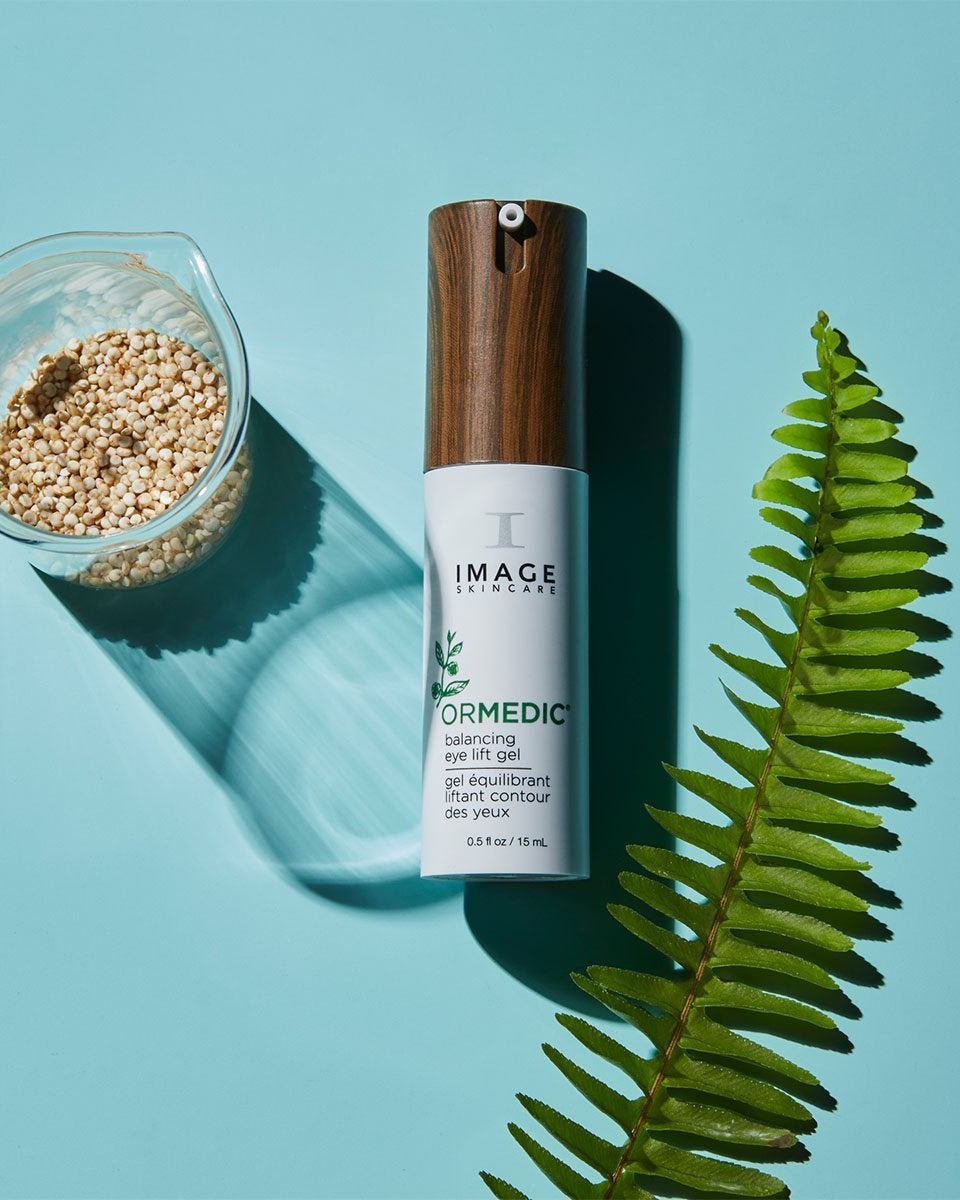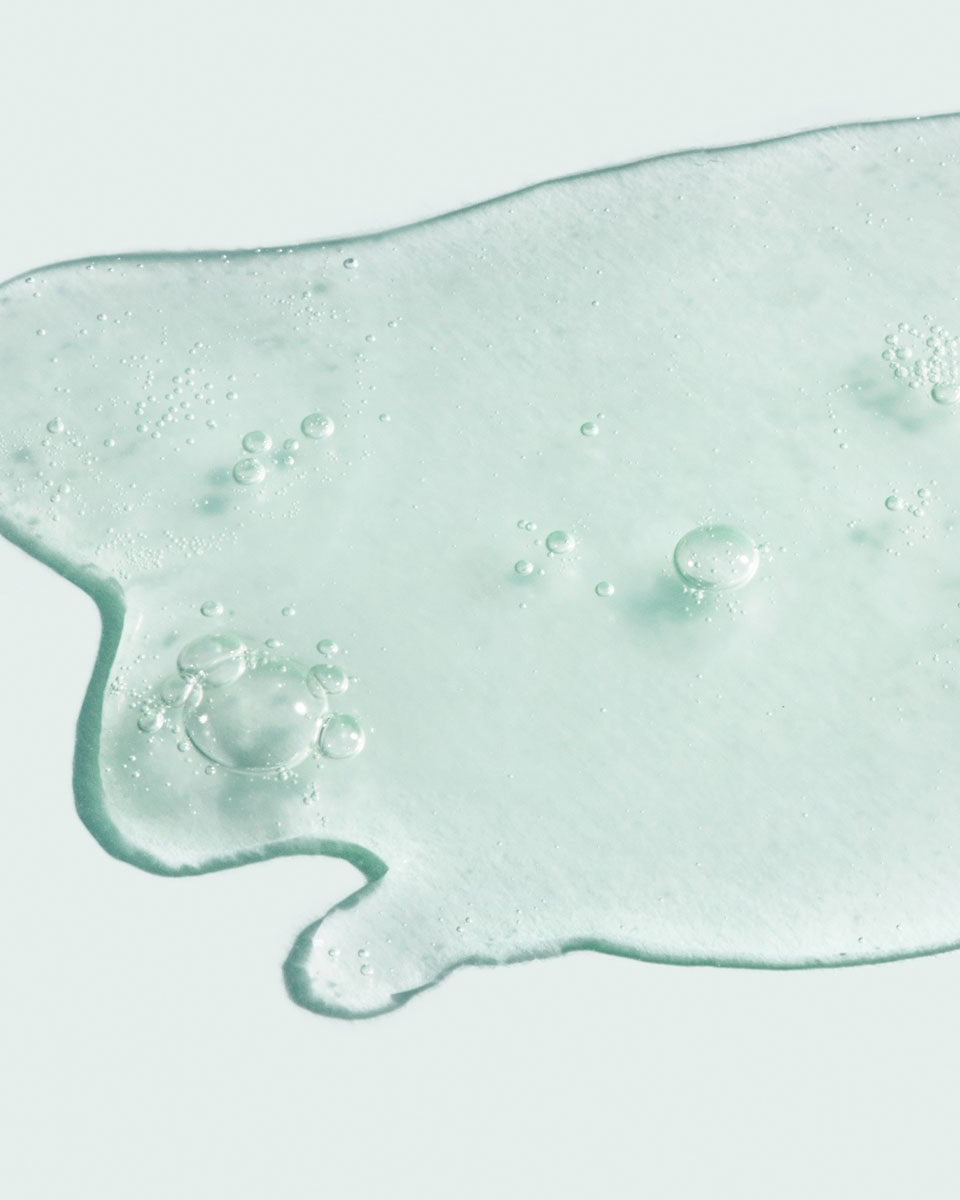Acai Extract: A powerful antioxidant that aids in eliminating free radicals.
Alfalfa Leaf Extract: An herb containing numerous minerals and vitamins C, E and K. Promotes overall wellness and healing.
Algae/Seaweed Extract: An herb that provides moisturizing and antioxidant properties.
Allantoin: A botanical acid that provides moisturization, increases smoothness, promotes wound healing and has soothing skin protectant benefits.
Aloe Barbadensis: Commonly known as Aloe Vera, provides soothing, healing and moisturizing.
Alpha Hydroxy Acid (AHA) : A powerful exfoliant that is derived from fruit acids, also provides antibacterial benefits. Common AHAs include: Glycolic Acid and Lactic Acid.
Alpha Lipoic Acid: A potent antioxidant that defends against free radicals.
Antioxidants: Common term used for substances found abundantly in nature, that slow or stop free radical, environmental damage to cells. This includes vitamins, such as A, C, and E, and coenzymes, such as alpha-lipoic acid and coenzyme Q10. Provide protective, anti-aging benefits.
Arbutin: A plant-based derivative of hydroquinone which aids in controlling hyperpigmentation by inhibiting the production of melanin. Also referred to as bearberry extract.
Arnica: An extract that promotes the healing of damaged tissue, redness and irritation, including bruises and dark circles.
Ascorbic Acid: (See Vitamin C).
Ascorbyl Glucoside: An antioxidant with skin lightening and antihyperpigmentation properties. When applied on the skin, it breaks down into L-Ascorbic Acid (pure Vitamin C).
Avobenzone: An oil-soluble chemical sunscreen agent that provides broad-spectrum benefits by absorbing UVA rays.
Avocado Oil: A potent antioxidant that protects against free radical damage, also moisturizes and softens dry skin and hair.
Azelaic Acid: An organic compound with natural antibacterial, anti-inflammatory, and antioxidant properties that’s used to treat a variety of skin conditions, including acne, rosacea and hyperpigmentation.
Basil Oil: An herbal extract that provides anti-inflammatory and antiseptic benefits.
Beeswax: A natural wax that is often used as a thickening agent or skin softening emollient.
Bentonite: A clay that helps to absorb impurities including excess surface oils, and deliver trace minerals to the skin.
Benzalkonium Chloride & Benzethonium Chloride: Compounds that are used for their antimicrobial, preservative, or foaming cleansing properties.
Benzoyl Peroxide (BPO): A potent antibacterial, antimicrobial peeling agent used for the treatment of acne.
Bergamot Essential Oil: From citrus fruit, provides balancing, relaxing, and anti-bacterial benefits. Also used as a natural added fragrance.
Beta Carotene: A powerful antioxidant found in carrots, fruits and leafy vegetables. It helps maintain smooth skin and protects from air pollutants.
Beta Hydroxy Acid (BHA): The only Beta-Hydroxy Acid is Salicylic Acid. It is a potent exfoliant that penetrates into pores, enabling the removal of dead skin cells from the pore and surface.
BHT (Butylated hydroxytoluene): An oil-soluble, synthetic antioxidant additive.
Biotin: From Vitamin B complex, essential for healthy hair and nail growth, also promotes healing in skin care.
Bitter Orange Oil: From the orange rind; has antioxidant properties. Also used as a natural added fragrance.
Caffeine: An antioxidant with energizing properties, often utilized in anti-cellulite and anti-puffiness products as it has been shown to reduce the thickness of subcutaneous fat.
Calendula Extract: A medicinal plant with antibacterial and antioxidant properties that provides soothing and healing benefits.
Camphor: An extract that provides a cooling effect, soothing scent and relieves itchy, irritated skin.
Carmine: A red pigment derived from the carminic acid produced by the cochineal insect. Often used as a color additive in many cosmetic products.
Cellulose: From the plant cell wall, also referred to as Hydroxyethylcellulose. Commonly used as a thickening agent and emulsifier.
Ceramides: The essential lipids (fats) naturally occurring in the surface layer of skin that deplete as skin ages. Used topically to hydrate and restore skin’s barrier.
Ceteareth: The combination of cetearyl and stearyl alcohols that acts as a thickening agent and emulsifier.
Cetyl Alcohol: Produced from petroleum or vegetable oil, it is used as a cleansing agent in shampoos and as an emollient, emulsifier and thickening agent in skincare products.
Chamomile Extract: Provides anti-irritant, soothing and antioxidant benefits. Also shown to strengthen skin, open and unclog pores.
Cocoa Butter: Extracted from the cocoa bean and used for its deep moisturizing benefits.
Coconut Oil: A plant seed oil that provides deep, reparative moisture to hair and skin.
Co Enzyme Q10: An essential antioxidant that neutralizes free radicals and promotes new skin cell growth.
Collagen: The naturally occurring fiber located within the dermis that provides strength and structure. Provides moisturizing benefits when applied to skin.
Comfrey Extract: Used to stimulate cells and often utilized for treating eczema, burns, and dry or itchy skin.
Copper Peptide: Compound containing 3 amino acids bound to a copper molecule. Promotes healing.
Cucumber Extract: A source of Vitamin C and iron. It nourishes, hydrates, and is a natural astringent.
Cyclomethicone: A form of silicone that is non-comedogenic and provides a smooth texture.
Dihydroxyacetone (DHA): A colorless sugar utilized as the active ingredient in sunless and self-tanning products due to its ability to temporarily darken the skin by staining dead skin cells on the skin’s surface.
Dimethicone: A form of silicone that is non-comedogenic and acts as a barrier in moisturizers by sealing in moisture and protecting against inflammation; also aids in smoothing fine lines and scarring.
Echinacea Extract: Helps stimulate collagen and repair skin with its anti-bacterial and anti-inflammatory properties.
EDTA: A preservative that is used to slow down the degradation of ingredients in products.
Elastin: A protein within the dermis that provides flexibility while keeping skin tight. When applied topically, it works to smooth, moisturize and protect skin and promote elasticity.
Eucalyptus Essential Oil: Used for its anti-bacterial, antifungal, and anti-viral properties.
Ginseng Extract: An herb known to promote cellular energy and encourage blood flow.
Glycerin: A naturally occurring compound of lipids that moisturizes skin and creates a barrier to prevent moisture loss.
Glycine: An amino acid that provides anti-aging benefits by promoting firmness and collagen production.
Glycol Stearate: An organic compound used as an emollient to provide softening and smoothing benefits while giving a pearlescent, shimmering look.
Glycolic Acid: An AHA exfoliant that is utilized to remove the buildup of dead skin cells, improving skin tone and texture. Has also been shown to help control surface oils and aid in reducing fine lines and wrinkles, sun damage, and skin conditions such as psoriasis or keratosis pilaris.
Gotu Kola Extract: (Centella Asiatica) repairs and strengthens skin with its anti-bacterial, anti-microbial and wound healing properties.
Grapeseed Extract: Antioxidant that aids in repairing hair and skin and promotes resiliency.
Green Tea Extract: A powerful anti-inflammatory and antioxidant that protects against free radical damage, providing anti-aging benefits
Growth Factors: Natural proteins in the body that promote cellular growth but decrease as we age. When applied topically, growth factors stimulate collagen, elastin and wound healing. Also known as cell growth factors, epidermal growth factors (EGF), copper tripeptide growth factors.
Hyaluronic Acid: Naturally found in our skin, but decreases with age; provides volume as it increases hydration, plumping and filling in fine lines and wrinkles. Helps skin retain moisture and has been shown to promote the absorption of Vitamin C. Also known as Sodium Hyaluronate.
Hydroquinone: A lightening agent in skincare that disrupts the production of melanin (pigment) to reduce the appearance of age spots, sun damage and melasma. Due to its potency, it is not recommended for long term use.
Isopropyl Alcohol: Commonly known as rubbing alcohol, often used in shaving or anti-acne products due to its antibacterial benefits.
Isopropyl Palmitate: Derived from palm oil, it is used as a moisturizer in hair and skin care.
Jasmine Essential Oil: Known to soothe, calm and tone the skin.
Jojoba Oil: Derived from the seed of a Jojoba shrub, it is used as a moisturizer and lubricant in hair and skin care. When hardened, forms jojoba beads, which provide gentle exfoliation.
Kaolin: A clay mineral often used in powders or masks to absorb oil, purge toxins from skin and decongest clogged pores. Also shown to help tone and tighten skin.
Kojic Acid: A mushroom extract that is a more recent remedy to target hyperpigmentation by inhibiting melanin production.
Kukui Nut Oil: Rich in essential fatty acids and vitamins, used to smooth, moisturize and protect skin.
L-Ascorbic Acid: Potent, stabilized and chirally correct form of Vitamin C. Penetrates deep into skin to promote healing, improve skin tone and texture, and targets aging and sun damage.
Lactic acid: An AHA exfoliant that hydrates skin and improves skin tone and texture. Aids in reducing fine lines and wrinkles, acne, and skin conditions such as psoriasis, keratosis pilaris and hyperkeratosis.
Lanolin: Derived from purified sheep’s wool. Used as an emollient or moisturizer to form a protective barrier and to soothe dry, itchy, chapped skin as well as chapped lips. Lanolin wax or oil is often used in hair care products to provide shine and enhance hold.
Lavender Essential Oil & Extract: Provides anti-bacterial and antiseptic properties as well as calming, soothing and healing benefits. Also used as a natural added fragrance.
Lecithin: A natural antioxidant derived from egg yolk, soy bean, animal or plant tissues. Lecithin attracts water and offers healing benefits, making it a natural moisturizer to condition hair and skin.
Lemon Essential Oil: Provides anti-bacterial and astringent properties, purifying and refreshing skin. Sometimes utilized as a natural brightening agent. Also used as a natural added fragrance.
Licorice Extract: An anti-inflammatory that aids in treating hyperpigmentation and rosacea by brightening, soothing and normalizing skin tone.
Linoleic acid: Rich in omega-3 fatty acids, when applied topically, provides moisturizing and anti-inflammatory benefits, promoting skin health.
Liposomes: Utilized in skin care as a delivery system to promote increased stability and penetration of active ingredients, effective results and minimized irritation. Also known as liposomal delivery system.
Lycopene: Antioxidant found in red fruits such as tomatoes and berries. Provides anti-aging benefits by providing nourishment and protecting skin from free radical damage.
Lysine: An essential amino acid that improves elasticity while promoting the growth of collagen and elastin.
Macadamia Nut Oil: Contains high amounts of essential fatty acids to nourish, protect and smooth hair and skin while retaining moisture.
Mallow Extract: Provides anti-inflammatory and soothing properties, as well as softening and hydrating benefits.
Mandarin Essential Oil: Provides anti-bacterial and circulatory benefits to heal and revitalize skin. Also used as a natural added fragrance.
Mandelic Acid: An antioxidant and is a stable form of Vitamin C.
Mango Butter: Contains high amounts of essential fatty acids to provide moisture and soothing nourishment to dry skin and hair.
Menthol: Can be either synthetic or derived from a variety of mint oils. It provides a cooling, tingling, effect to refresh and revitalize skin.
Methyl Gluceth: Derived from corn sugar or corn starch. It acts as a moisturizer by binding water to dry hair or skin, effectively treating eczema, dry, itchy or rough skin.
Methylparaben: Frequently used preservative as it is anti-fungal and usually non-irritating.
Niacinamide: A form of Vitamin B3 and essential for healthy metabolism. Benefits mature, acneic or hyperpigmented skin by improving tone, texture and inflammation.
Oat Kernel Flour: Provides soothing, softening and nourishing benefits.
Octisalate (Octyl salicylate): A chemical sunscreen agent that absorbs UVB radiation.
Octinoxate (Octyl methoxycinnamate): A chemical sunscreen agent that absorbs UVB radiation.
Octocrylene: A chemical sunscreen that absorbs UVB and short-wave UVA radiation. Also has water resistant properties.
Olive Oil: High in Vitamin E and antioxidants, promotes a smooth, radiant complexion and helps maintain elasticity.
Oxybenzone: A chemical sunscreen that absorbs UVB and short-wave UVA radiation
Panthenol: Pro-Vitamin B5, provides moisturizing and healing benefits, reducing itchiness and inflammation.
Parabens: Used in cosmetics for their preservative and anti-fungal properties. Can cause irritation in individuals with highly sensitive skin or paraben allergies.
Pearl Powder: Helps sooth and repair skin while providing a luminous, radiant glow.
Peppermint Leaf Extract & Oil: Provides anti-inflammatory, anti-fungal, and refreshing benefits.
Peptides – A string of amino-acids which make up proteins that communicate to one another to stimulate the growth of collagen.
Petrolatum: Also known as petroleum jelly or soft paraffin, commonly used as an ointment or balm to soothe skin, hold in moisture and create a barrier from bacteria.
Pineapple Enzyme (Bromelain): Natural exfoliant that softens skin by ridding it of dead skin cells.
Pomegranate Juice: An antioxidant used to stabilize free radicals.
Proline: An amino acid that aids in the production of collagen.
Propylene Glycol: An organic compound used for its moisturizing benefits.
Pumice : A naturally occurring volcanic rock used as an exfoliant to remove dead skin cells.
Red Tea: An antioxidant-rich tea that's grown only in South Africa. Provides anti-aging benefits by protecting against environmental damage.
Resveratrol: A powerful antioxidant produced naturally in plants, provides anti-inflammatory and anti-aging benefits by fighting free radicals.
Retinal, Retinaldehyde: A form of Vitamin A that provides anti-aging benefits as it promotes cell turnover. When applied topically, it converts into retinoic acid. As a more stabilized form of Vitamin A, it is generally less irritating. However, it still is not possible to be completely stabilized.
Retinol: A fat soluble form of Vitamin A that provides anti-aging and antioxidant benefits as it promotes cell turnover. When applied topically, it converts into retinal. May cause irritation.
Retinyl palmitate: The ester of retinol that is combined with palmitic acid; provides anti-aging, antioxidant, and protective benefits. When applied topically, it converts into retinol. Due to its concentration of Vitamin A, it is generally less irritating.
Rose Hip: The seed pods of roses used for their potent concentrations of vitamins, essential fatty acids and antioxidants to provide nourishment and moisture to skin.
Safflower Oil: A natural emollient plant oil which provides hydrating and protective benefits while sealing in moisture.
Salicylic acid: A beta hydroxy acid (BHA) that exfoliates skin, removing dead skin cells, preventing clogged pores and excessive oil production. Effective at treating many conditions such as acne, psoriasis, keratosis pilaris, calluses and dandruff. Also known as Salix Alba or Willow Bark Extract.
Sandalwood Essential Oil: Provides calming, soothing and refreshing benefits. Also used as a natural added fragrance.
Shea Butter: Provides healing, hydrating, smoothing and softening benefits for hair and skin. Also known as Butyrospermum Parkii.
Silica: A chemical compound that provides a smoothing effect. Commonly used in makeup as it helps provide a flawless finish and smoother application. Also known as Silicon Dioxide.
Silicone: A synthetic compound used for its softening and conditioning benefits.
Sodium Hyaluronate: (See Hyaluronic Acid)
Sodium Lauryl Sulfate (SLS): Used as a cleansing agent due to its foaming properties.
Sodium PCA (NaPCA): Naturally occurs in skin, also derived from amino acids. Provides moisturizing and softening benefits as it helps attract and retain moisture.
Sorbic acid: Used for its preservative properties and ability to retain moisture.
Sorbitol: A sugar alcohol naturally occurring in many fruits, used for its ability to thicken products and retain moisture.
Spinach Powder Extract: Contains high levels of Vitamin K and antioxidants, providing protective benefits.
Squalane: A naturally occurring lipid found in plants and animals, often derived from oils. Provides moisturizing and softening benefits.
Stearic acid: A saturated fatty acid occurring in solid animal and vegetable fats use to harden soaps and as a emollient, and to produce a pearly effect in certain products.
St. Johns Wort Extract: Used for its antibacterial and antiviral benefits. Also known as Hypericum Perforatum.
Sulfur: Natural mineral commonly used in anti-acneic product due to its ability to kill bacteria, reduce surface oil and deeply cleanse pores.
Sunflower Seed Oil: Rich in vitamins and fatty acids, promotes healthy, smooth skin and hair while preventing moisture loss and cell damage.
Sweet Orange Essential Oil: Provides stimulating and refreshing benefits. Also used as a natural added fragrance.
Titanium Dioxide: A physical sunscreen ingredient used to block UVA, UVB and UVC radiation. Often used for those with sensitive skin or young children, as it is non-irritating.
Tocopheryl Acetate: (see Vitamin E)
Triclosan: Provides antibacterial and anti-fungal benefits and is used in soaps, deodorants, and wound healing products.
Tyrosine: An amino acid used by cells to produce proteins with the skin, and is often used in combination with Vitamin C to promote collagen.
Vitamin A: Related to the retinoid family and is produced in many different forms and strengths. Acts as an antioxidant, promoting cell turnover and advanced exfoliation, resulting in improved skin texture and tone with reduced fine lines and wrinkles. Also used in some acne and hyperpigmenation products. (See Retinal/Retinaldehyde, Retinol and Retinyl Palmitate for additional information)
Vitamin C: An essential antioxidant that brightens overall skin tone, aids in lightening hyperpigmentation and sun damage and tightens skin as it encourages collagen growth. Also promotes healing and strengthens skins barrier. Vitamin C is produced in many different forms and strengths with L-Ascorbic Acid being the most stabilized and potent form.
Vitamin E: Also known as tocopherol and tocopheryl acetate. Vitamin E is a fat soluble antioxidant that protects the skin from free radical and UV damage. It moisturizes skin and helps reduce the appearance of fine lines and wrinkles. It also promotes healing and is used in treatments for psoriasis, stretch marks and scarring.
Vitamin K: Promotes blood flow, thus decreasing puffiness and discoloration. Commonly used in eye products and treatments for rosacea.
Wheat Germ Oil: An antioxidant rich in Vitamin E, used to nourish dry, chapped and aging skin.
Witch hazel: Derived from flowering plants, is a natural antiseptic that regulates sebum, calms inflammation and reduces the appearance of pores.
Xanthan gum: A complex carbohydrate used as a thickening agent and to prevent products from separating.
Yeast Extract: Contains a mixture of proteins, vitamins and amino acids. Has been known to stimulate and repair the skin's immune system, encouraging cell renewal and elasticity.
Yucca Extract: Provides antioxidant and anti-inflammatory benefits, promoting cell renewal.
Zinc oxide: A physical sunscreen ingredient that prevents UV rays from penetrating the skin. Also contains antiseptic benefits, and can relieve irritation associated with dandruff.












